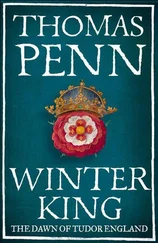Jean Plaidy - To Hold the Crown - The Story of King Henry VII and Elizabeth of York
Здесь есть возможность читать онлайн «Jean Plaidy - To Hold the Crown - The Story of King Henry VII and Elizabeth of York» весь текст электронной книги совершенно бесплатно (целиком полную версию без сокращений). В некоторых случаях можно слушать аудио, скачать через торрент в формате fb2 и присутствует краткое содержание. Жанр: Старинная литература, на русском языке. Описание произведения, (предисловие) а так же отзывы посетителей доступны на портале библиотеки ЛибКат.
- Название:To Hold the Crown: The Story of King Henry VII and Elizabeth of York
- Автор:
- Жанр:
- Год:неизвестен
- ISBN:нет данных
- Рейтинг книги:5 / 5. Голосов: 1
-
Избранное:Добавить в избранное
- Отзывы:
-
Ваша оценка:
- 100
- 1
- 2
- 3
- 4
- 5
To Hold the Crown: The Story of King Henry VII and Elizabeth of York: краткое содержание, описание и аннотация
Предлагаем к чтению аннотацию, описание, краткое содержание или предисловие (зависит от того, что написал сам автор книги «To Hold the Crown: The Story of King Henry VII and Elizabeth of York»). Если вы не нашли необходимую информацию о книге — напишите в комментариях, мы постараемся отыскать её.
To Hold the Crown: The Story of King Henry VII and Elizabeth of York — читать онлайн бесплатно полную книгу (весь текст) целиком
Ниже представлен текст книги, разбитый по страницам. Система сохранения места последней прочитанной страницы, позволяет с удобством читать онлайн бесплатно книгу «To Hold the Crown: The Story of King Henry VII and Elizabeth of York», без необходимости каждый раз заново искать на чём Вы остановились. Поставьте закладку, и сможете в любой момент перейти на страницу, на которой закончили чтение.
Интервал:
Закладка:
“I see,” said the King. “Go on.”
“I would remind you, Sire, of your promise to me.”
“Yes, yes, a free pardon. It is yours.”
“And five hundred pounds for my services.”
“It shall be yours. Tell me of this traitor.”
“I fear you will be inclined to disbelieve me for it concerns one very close to you . . . even related.”
The King tapped his fingers impatiently, but still Sir Robert hesitated, whether to give his revelation more momentum or whether he feared the King’s wrath over what he was about to reveal, Henry was not sure.
“Come, come, Clifford. Speak up.”
“My lord, Sir William Stanley is in league with Perkin Warbeck.”
“Stanley! Impossible.”
“I feared you would feel so, my lord. But it is the truth. I have evidence. Letters in his handwriting. He is ready to offer his help to the impostor when he lands in England.”
Henry was silent. He would not believe it. Not William Stanley . . . brother of his father-in-law! Heaven preserve him, how deep had this thing gone! He had scarcely had a night’s sound sleep since he had heard the name of Perkin Warbeck.
“Allow me, Sire,” said Clifford. “I can give you irrefutable evidence and knowing that you would find it difficult to believe in this man’s perfidy I have brought you that evidence.”
The King held out his hand.
He stared down at the paper. Stanley’s writing. Stanley’s treason! There could be no doubt of it.
He felt sick with disgust and anger. Had he not seen it with his own eyes he would never have believed it. Stanley! What would his mother say? What would his stepfather say? This was terrible. This was treachery of the worst kind.
“My lord, you believe me now?”
“I believe you, Sir Robert. You have done good work. It is a pity that you were ready to betray me in the beginning.”
“A mistake, Sire, for which I crave the pardon which you have already granted me. I realized my mistake and I wished to rectify my errors . . . which I am sure with your love of truth and justice you will readily agree that I have done.”
For five hundred pounds and a free pardon! How uneasy is he who is a king! Must it always be so? Must those whom he most trusts betray him?
“You have done well,” he said. “You shall be paid your five hundred pounds. Leave these papers with me . . . You may go to my treasurer and take an order from me for your five hundred pounds, which shall be paid to you at once. Then you may go.”
“Thank you, my lord. It has been my pleasure to serve you.”
“Go now,” said the King coldly.
He sat silent for a few seconds. Somewhere in this very palace Sir William Stanley would be preparing for the evening’s entertainment, little guessing that his perfidy was revealed. Henry was glad that he had come to the Tower. Stanley could be taken to his cell without undue fuss.
He sent for the guards.
“Arrest Sir William Stanley,” he said, “and have him conducted to a dungeon. Make sure that he is well guarded.”
The men-at-arms were astounded. They hesitated, wondering if they had heard correctly.
The King said, and his voice was very cold: “Those are my orders. Sir William Stanley is to be conducted without delay to a dungeon. He is under close arrest.”
The men bowed and went out. Henry sat for a few moments staring into space, his face creased into lines of desperate unhappiness.

The King signed to the jailer to open the door of the cell. He went in. Stanley turned sharply and let out a cry when he saw who his visitor was. He went onto his knees and tried to take the King’s hand.
“My lord . . . Sire . . . I do not understand.”
“Get up, Stanley,” said the King. “Alas, I understand all too well.”
“My lord, I pray you tell me of what I am accused.”
“Of treachery, Stanley.”
“Treachery? I . . . Your faithful servant . . .”
“My unfaithful servant, alas. Have done with pretense. I know that you have been in correspondence with the impostor Perkin Warbeck. I have seen your letters. . . .”
Stanley’s shocked silence would have proclaimed his guilt if that had been necessary. It certainly was not. Henry had no doubt of it. It had been made quite clear to him.
“My lord . . . I thought . . . to discover more of this man . . .”
An old excuse! It never worked. He was going to say: I was pretending to be with the other side in your service. I wanted to find out what they were planning so that I could present my findings to you.
“It is useless, Stanley, I know all. Do you imagine that while you have your friends over there I have none? My good servants were working for me, Stanley, while my unfaithful ones were working against me. I could not believe it at first. You . . . Stanley . . . Your brother my own stepfather. My mother will be quite distressed. I should think your brother will be ashamed.”
Stanley covered his face with his hands. “As I am, my lord . . . as I am. . . .”
“Perhaps I should have suspected you. You were ever a turncoat.”
Stanley spoke with some spirit. “Ah, my lord, you owe something to that. Have you forgotten Bosworth Field?”
“I do not forget, Stanley, that you started out with Richard and when the battle turned against him you changed sides.”
“And decided the day for you, my lord.”
“There could be something in that. But one should never trust a turncoat. So now you are ready to give your services to Perkin. Has he promised to pay you well? I rewarded you did I not? Did I not acknowledge my debt to you? You were my Lord Chamberlain, Knight of the Garter. Did I not give you estates in Wales? And yet, and yet . . .”
Stanley was silent.
The King looked at him steadily. “I just wondered why, Stanley. You must have been promised a great deal. I know your love of possessions. I have heard that you have many treasures stored away in Holt Castle. Alas, Stanley, you cannot take them with you.”
“My lord . . .”
“You shall be tried, Stanley. Never fear—it shall be a fair and just trial. And if you are found guilty . . . as it would seem you cannot fail to be . . . you will pay the penalty demanded of traitors. Goodnight, Stanley. I think you should begin to make your peace with God.”
The King went out. A terrible melancholy possessed him. He felt that he would never trust anyone again.

Sir William Stanley was brought before his peers in Westminster Hall, where he was accused of falsely plotting the death and destruction of King Henry the Seventh and attempting to overthrow the kingdom.
In vain did he protest his innocence. He had been maligned, he insisted; his enemies had trumped up evidence against him; but even he knew that none would believe him. He had been a fool. He had gambled too far. He had always been an adventurer. As a Yorkist during the reign of Edward the Fourth he had enjoyed many favors; he had professed friendship for Richard the Third but when he had seen an opportunity of finding favor with Henry he had blatantly deserted Richard and as it happened swung the battle in Henry’s favor. He had often congratulated himself on going over at precisely the right moment. Henry had been grateful, had rewarded him. But perhaps Stanley was adventurous by nature; perhaps the thought of this young man on the Continent had fired his imagination. It was possible that he was one of the Princes in the Tower, for the question of what had happened to those Princes had never been satisfactorily answered.
However, whatever motives had led him to this, he was here and he had come to the end. He knew now there would be no adventures, no more plots and counter plots.
Читать дальшеИнтервал:
Закладка:
Похожие книги на «To Hold the Crown: The Story of King Henry VII and Elizabeth of York»
Представляем Вашему вниманию похожие книги на «To Hold the Crown: The Story of King Henry VII and Elizabeth of York» списком для выбора. Мы отобрали схожую по названию и смыслу литературу в надежде предоставить читателям больше вариантов отыскать новые, интересные, ещё непрочитанные произведения.
Обсуждение, отзывы о книге «To Hold the Crown: The Story of King Henry VII and Elizabeth of York» и просто собственные мнения читателей. Оставьте ваши комментарии, напишите, что Вы думаете о произведении, его смысле или главных героях. Укажите что конкретно понравилось, а что нет, и почему Вы так считаете.












